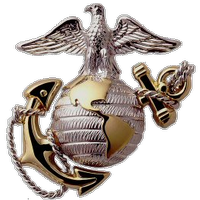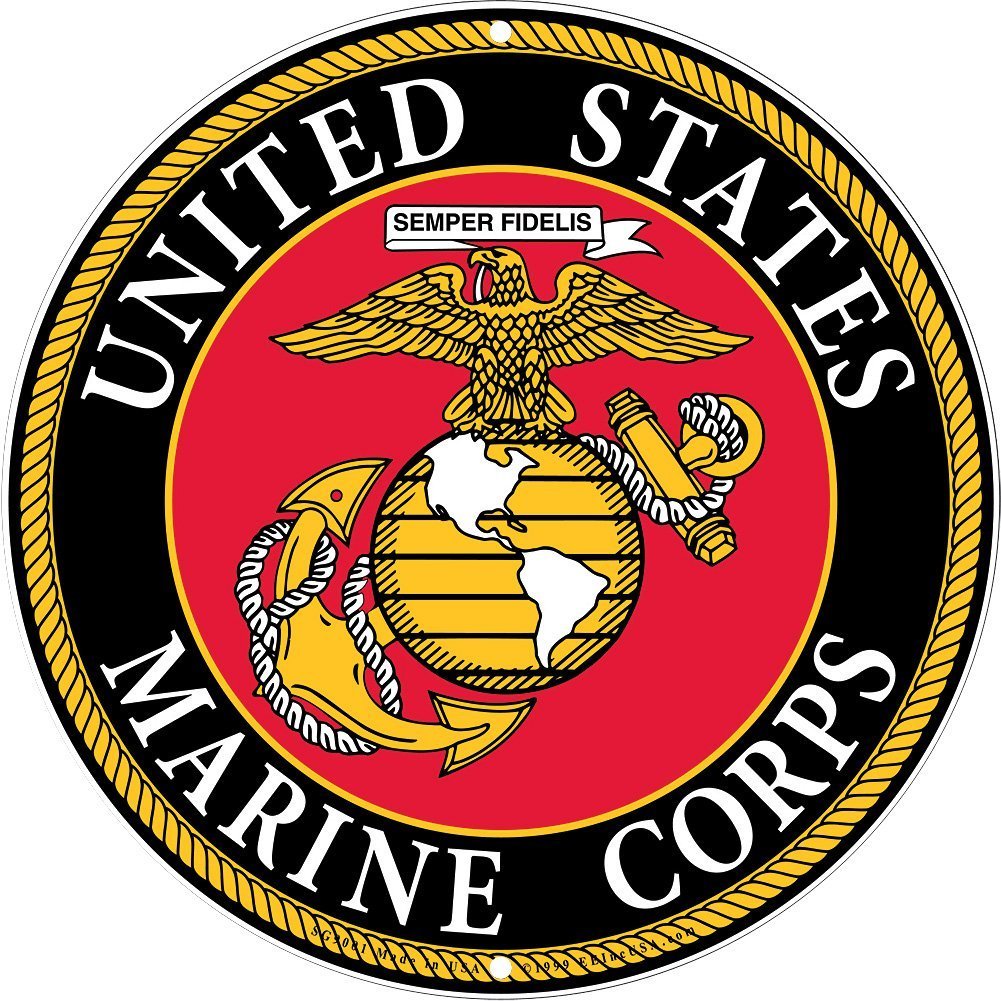Marine Traditions

Marine customs are simply desirable courses of action sanctioned by tradition and usage. In the Marine Corps, practically every custom has grown out of the manner in which Marines of the past conducted themselves. Many Marine customs have been incorporated into regulations in order to standardize conduct throughout the Corps, but some of them cannot be found in written directives. Knowing and observing these customs, both written and unwritten, is important to each Marine because it keeps him mindful of the heritage and traditions of his Corps, and of his duty to uphold them.
In addition, it makes him feel that he is a part of the team and helps to create the strong bond of loyalty between him and all other Marines that has become a distinguishing mark of the Corps.
Marine Corps Birthday. One of the most famous Marine customs is the observance of the Marine Corps Birthday.
Since 1921 the birthday of the Marine Corps has been officially celebrated each year on 10 November, since it was on this date in 1775 that Continental Congress resolved, "That two Battalions of Marines be raised...." Over the years the Marine Corps Birthday has been celebrated in a wide variety of ways, depending on the location and circumstances of the Marine units. The celebration involves the reading of an excerpt from the Marine Corps Manual and a birthday message from the Commandant; the cutting of a birthday cake by the commanding officer; and the presentation of the first and second pieces of cake to the oldest and youngest Marines present. Recently, the ceremony for the observance of the Marine Corps Birthday by large posts and stations has been incorporated into written directives.
Among other terms in common usage are: "two-block" -to tighten or center (as a necktie); "square-away" - to correctly arrange articles or to take in hand and direct an individual;" "head" - a bathroom; "scuttle-but" -a drinking fountain, also an unconfirmed rumor.
In the Marine Corps, the nautical expression "Aye, Aye, Sir" is used when acknowledging a verbal order. "Yes, Sir" and "No, Sir" are used in answer to direct questions. "Aye, Aye, Sir" is not used in answer to questions as this expression is reserved solely for acknowledgement of orders.
Reporting Your Post. A custom which affects the guard is the manner in which a sentry reports his post to the officer of the day, or to the officers and noncommissioned officers of the guard. The customary procedure is for the sentry to salute or come to present arms and say, "Sir, Private ______________ reports Post Number ____ all secure. Post and orders remain the same. Nothing unusual to report." This custom has almost universal use throughout the Marine Corps. It is a convenient, useful form, and thus it has been preserved by custom, and passed on by word of mouth.
Salutes. Some of the most important customs of all are those of military courtesy. In the Marine Corps, courtesy is an expression of respect for the authority possessed by an individual, as well as a demonstration of respect for the Corps as a whole. Through the use of the various forms of military courtesy a Marine says, in effect, "As brothers in arms and fellow Marines, I consider you worthy of my respect." When used in this manner, military courtesy assumes one of its most important roles; it is an expression of the respect a Marine has for other Marines and for himself. Of all the forms of military courtesy, the various salutes are probably the most important. They are certainly the most obvious and frequently used. Saluting is the traditional form of greeting between men of the profession of arms and it is an honored tradition of military organization throughout the world.
Certain features of saluting in the Marine Corps carry Marine Corps custom specifically. For example: Marine Corps usage has it that a greeting be exchanged when saluting a person. When saluting an officer, the Marine might say, "Good Morning, Sir," or "Good Evening, Sir," as appropriate. The officer in returning the salute would say, "Good Morning, Sergeant (Private, Corporal, Lieutenant, as appropriate.)"
Marines in uniform salute officers (or senior officers), even if that officer is in civilian clothes (assuming the Marine recognizes the individual as an officer). Conversely, it's not considered appropriate for a Marine in civilian clothes to initiate a salute to an officer (or senior officer), even if that officer is in uniform.
During the playing of the National Anthem, at morning and evening colors, and at funerals, if in civilian dress, Marines uncover and hold the hat over the left breast at such times as those in uniform salute.
Miscellaneous
There are many other customs which have significance in the life of a Marine. A few of the notable ones are listed here.
Boarding a small boat or entering a car. When boarding a small boat or entering a car, Juniors enter first and take up the seats or the space beginning forward, leaving the most desirable seat for the senior. Seniors enter last and leave first.
Marines' Hymn. Whenever the Marines' Hymn is played or sung, all Marines rise to their feet and remain standing during the rendition of the music.
Serenading the Commandant. Commencing with the last New Year's Day of the Civil War, on the morning of 1 January of each year the Marine Band serenades the Commandant of the Marine Corps at his quarters and received hot buttered rum and breakfast in return.
Wetting Down Parties. Whenever an officer is promoted, he customarily holds a "wetting-down party." At this time the new commission is said to be "wet down." When several officers are promoted at the same time, they frequently have a single wetting-down party.
Wishes of Commanding Officer. When the commanding officer of a Marines says, "I wish" or "I desire," these expressions have the force of a direct order and should be acted upon as if he had given a direct order.
Looking Out for Your Men. One feature which has made the Marine Corps such a respected organization is the custom of Marine leaders looking out for their men. A Marine leader makes sure his men are comfortably clothed, housed, and justly treated. For example, in the field a Marine officer takes position in the mess line after all the enlisted men in order to insure all men get their food. A Marine leader never leaves a wounded or dead Marine on the battlefield to fall into the hands of the enemy.
Being a Marine. But the most outstanding custom in the Marine Corps is simply "being a Marine" and all that it implies. Call it morale, call it esprit de corps, call it what you will--it is that pride which sets a United States Marine apart from the men of other armed services. It is not taught in manuals, yet it is the most impressive lesson a recruit learns in boot camp. It is not tangible, yet it has won fights against material odds. Perhaps it has best been defined by Senator Paul H. Douglas:
-
"Those of us who have had the privilege of serving in the Marine Corps value our experience as among the most precious of our lives. The fellowship of shared hardships and dangers in a worthy cause creates a close bond of comradeship. It is the basic reason for the cohesiveness of Marines and for the pride we have in our corps and our loyalty to each other."
A Marine is proud of his Corps and believes it to be second to none. He is loyal to his comrades and to the Marine Corps, adhering always to the motto Semper Fidelis (Always Faithful).
Above Information from the Marine Corps Historical Reference Series, 1963, Courtesy of the United States Marine Corps
Nautical Terms. Many of the Marine Corps customs are derived from the many years of service afloat. Even ashore Marines customarily use nautical terms. Floors are "decks," walls are "bulkheads," ceilings, "overheads," corridors, "passageways." The order "Gangway!" is used to clear the way for an officer ashore, just as it is afloat.
-
UNITED STATES MARINE CORPS
-
SEMPER FIDELIS
Copyright 2016 © KurtKuder.com









